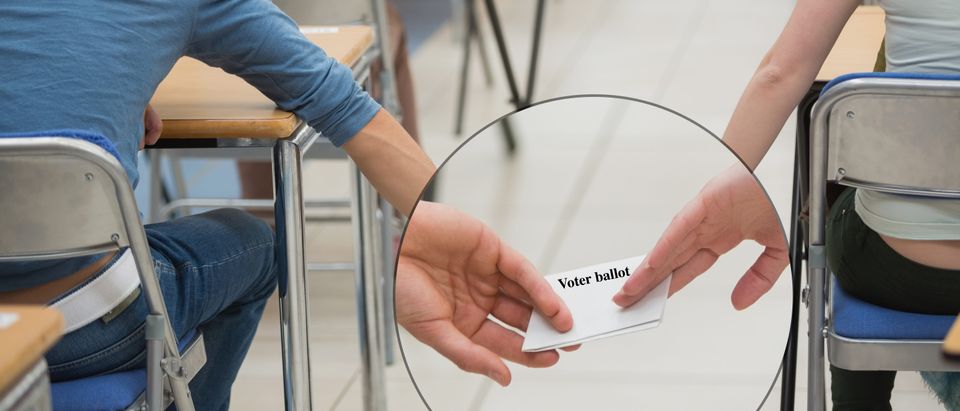With union participation at its lowest point in history, Big Labor bosses and their cronies in Congress are desperate to boost their dwindling membership numbers. And apparently, they’re willing to pull out all the legislative stops to do so.
Take, for example, the recently introduced and deceptively named “Workplace Democracy Act” (WDA). If passed, this bill would undermine decades of established labor law, directly threatening both employees and employers, in order to promote a decidedly pro-union agenda.
Congress should take time to review the facts about what this legislation would do and what it is really about — because it most certainly is not about promoting democracy in the workplace.
The WDA was introduced in May by four of the Senate’s most prominent liberal members — Senators Bernie Sanders (I-Vt.), Elizabeth Warren (D-Mass.), Kirsten Gillibrand (D-NY), and Cory Booker (D-NJ), all of whom are likely to run for president in 2020 — as well as Representative Mark Pocan (D-Wis.).
While the bill’s introduction certainly helps raise visibility and gin up support among the lawmakers’ liberal base, actual passage of this bill would be a direct affront to workers’ rights and a violation of many of the established tenets of fair labor law.
Perhaps most egregious of its provisions, WDA would eliminate privacy in union-organizing elections.
Instead of being able to vote for or against unionizing by secret ballot, workers would be forced to use a “card check” process. Card check would essentially compel workers to vote for or against unionization by signing or not signing a card in front of union organizers, co-workers, and employers. This anti-democratic process opens the door to intimidation, coercion, and harassment. While these may not be uncommon tactics in organizing drives, they should not be encouraged or sanctioned by law.
The use of secret ballot in elections — whether to organize or to vote for the president— is one of the fundamental bedrocks of our democracy. There is simply no justification for members of Congress to support removing this right from workers.
The Workforce Fairness Institute regularly tracks and scores members of Congress based on their stances on a range of issues. We are adding WDA to our list of criteria in these legislative scorecards so the public can know who is lending their support to a bill that would threaten workers’ fundamental right to privacy.
Unbelievably, the WDA gets worse.
In addition to eliminating the secret ballot, it would permit “secondary boycotts” against businesses not involved in a labor dispute and codify the National Labor Relations Board’s disastrous joint employer decision, which has already sowed confusion and discord among employers and employees at franchise businesses.
The WDA would also impose forced government arbitration of union contracts, putting critical workplace decisions into the hands of unelected, Washington, D.C., bureaucrats who have no connection to the businesses, employers, or employees involved. And it would eliminate protections that prevent compulsory unionization by abolishing right-to-work laws in the 28 states that have voted for them so far, among many other damaging provisions.
Those aren’t the only negative implications for workers and employers if Congress passes WDA, but they certainly are some of the most problematic. For their part, the Coalition for a Democratic Workplace has played a valuable role in helping educate the public about the potential fallout for employees and employers alike if Congress were to pass this extreme bill.
The woefully mistitled Workplace Democracy Act may be good theater during an election cycle, but it is not good public policy. It would upend decades of established labor law in order to promote a radically pro-unionization agenda, and it would do so at the cost of many of the rights and freedoms workers currently enjoy—and deserve. The WDA is a lose-lose for employees and employers and should be a non-starter.
Heather Greenaway is the spokeswoman for the Workforce Fairness Institute.
The views and opinions expressed in this commentary are those of the author and do not reflect the official position of The Daily Caller.


